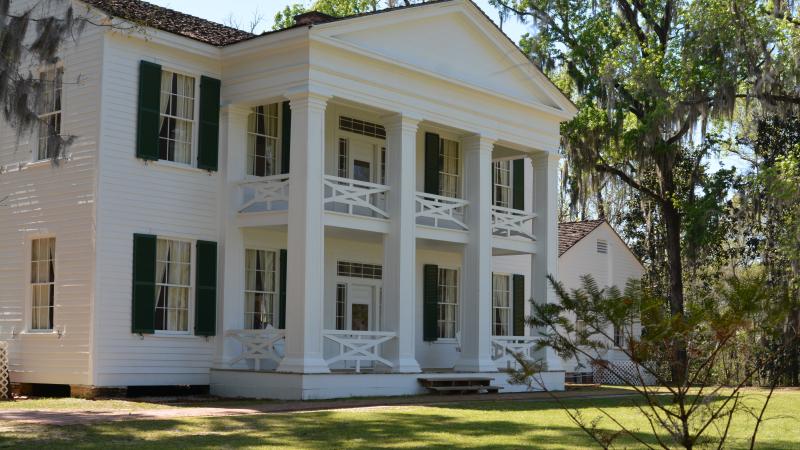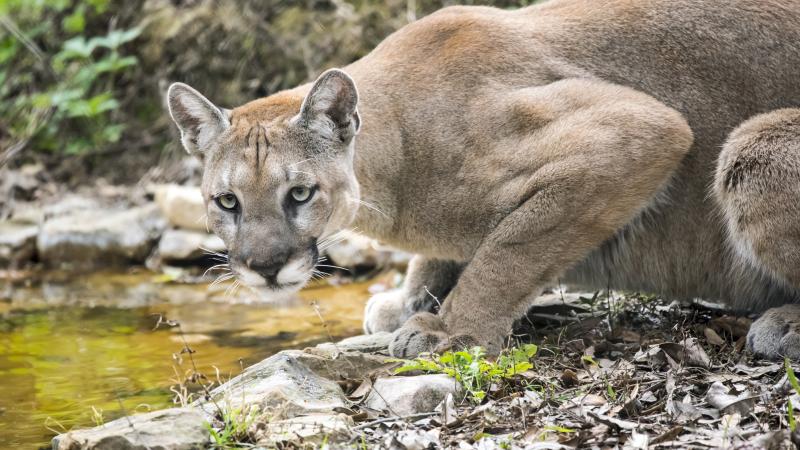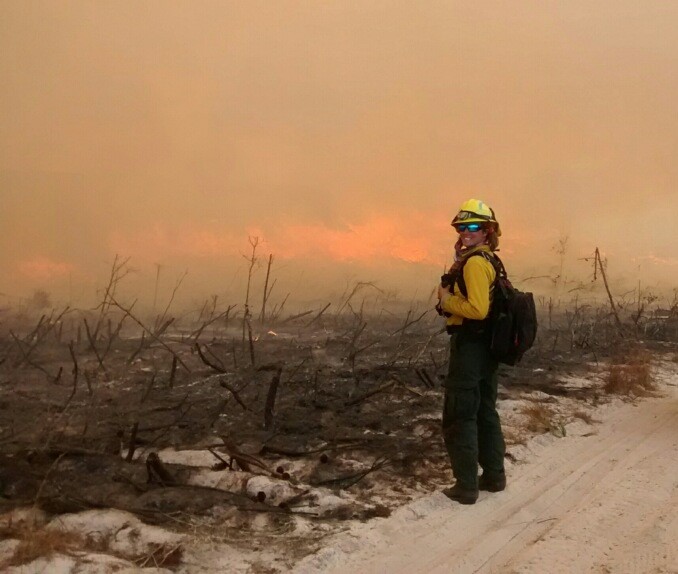
Burn Boss Q&A with Ashley Orlando
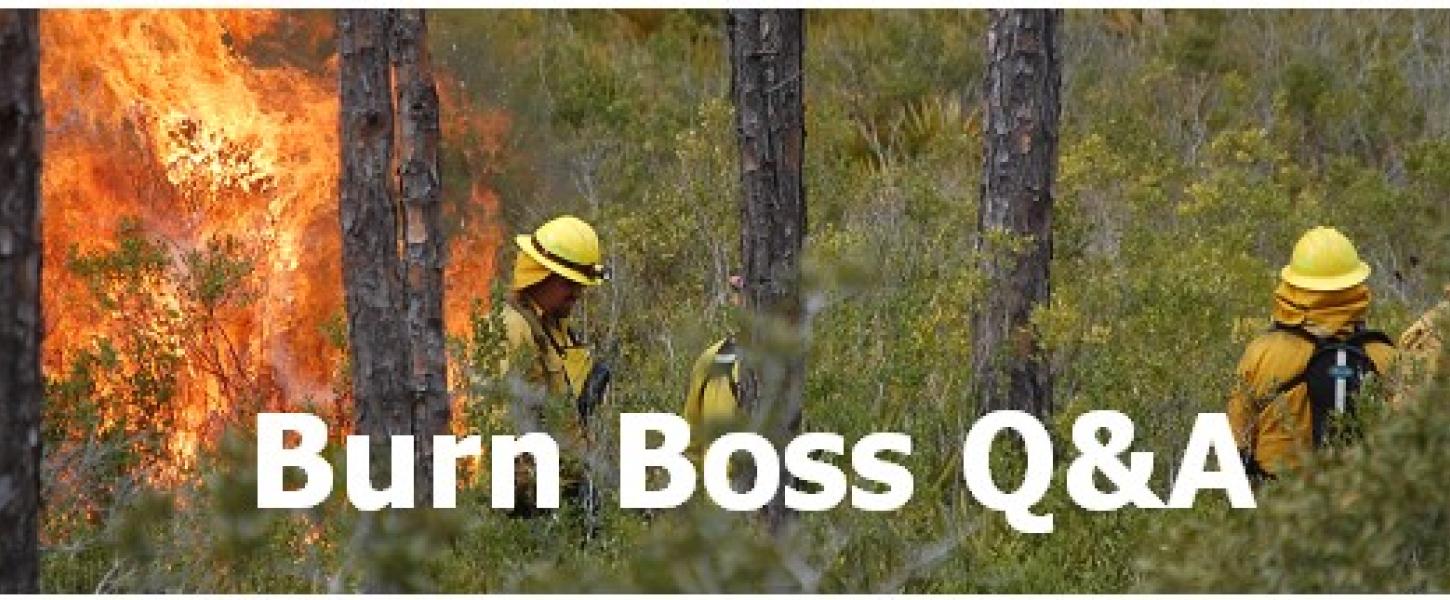
Interview with a Burn Boss: Ashley Orlando
How do we ensure the Florida Park Service continues to have trained, competent fire staff?
We can develop a competent fire staff by encouraging staff to get training, enabling them to go out on fires at different parks and with different partners, and being involved with their progress.
The Florida Park Service has amazing burners. They are truly dedicated and hard-working individuals who give their blood, sweat and tears to the program.
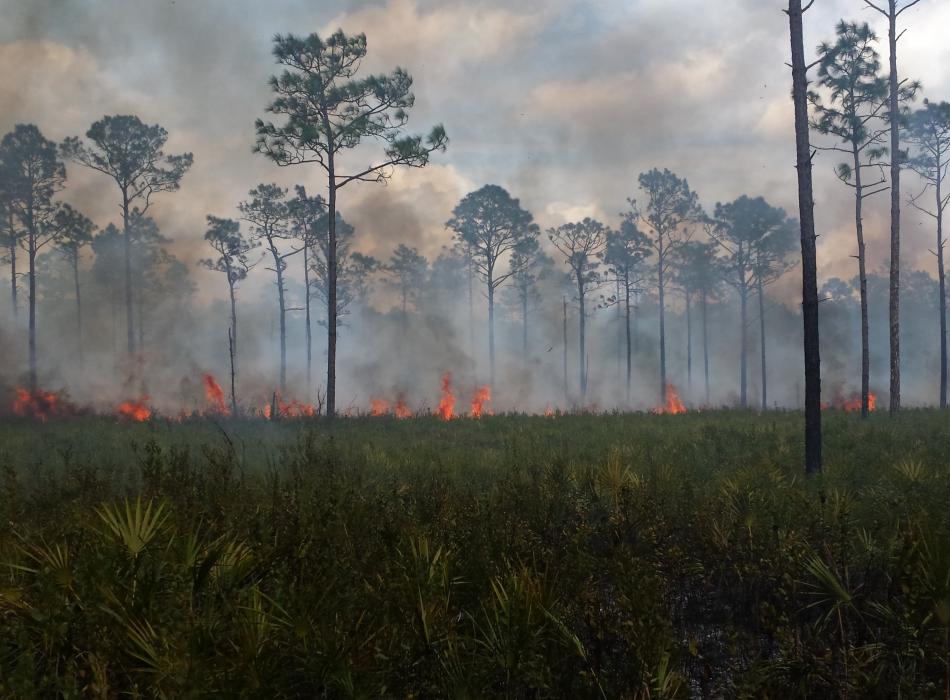
What is the No. 1 challenge you had to overcome to become a successful burn boss?
Self-confidence. A big part of being a success in most things is having the ability to step up and speak up. In the fire world, it can be detrimental if you don’t. Having learned to believe in myself and my decisions came hand-in-hand with becoming a burn boss. I remember my first fire and how unsure I was of a drip torch. I remember when I forgot to lock the hubs and was momentarily “environmentally detained.” I remember when I spoke up at briefing on something I didn’t agree with and it changed the burn that day for the better.
Becoming a successful burn boss took practice, time, my superiors believing in me, me believing in me, helping others, my management allowing me to go on burns, trainings, paying attention, and self-drive. It’s not always easy. There are tough days (even now). Believe in yourself, have a mission or goal, surround yourself with others who care about you and your path, and keep on moving. It’s OK to be discouraged sometimes; it’s part of the path you or I are on. There are going to be bumps in the road, especially if it’s a tilled line.
What’s it’s like to be a successful female burn boss in a male-dominated field?
Most fellow burners are good natured. Everyone wants to learn, help and restore natural communities. In my career, I’ve had many great female role models.
There are occasions on burns where I am bossing or others are bossing, and I am the only female. Sometimes I barely notice.
A couple of years ago, I was honored to be involved with an all-female fire crew for a burn at a preserve in Florida that really demonstrated the amazing cohesiveness and respect we share as fire practitioners. I think being successful as a burn boss is being resilient, like a fire-adapted community. Women are definitely resilient.
About the Author

Ashley Orlando has been with the Florida Park Service since 2011, working at several different state parks including Anastasia, Fort Mose, Faver-Dykes and Washington Oaks. Currently Ashley is the park services specialist at Dunns Creek State Park. She also serves as the District 3 Fire Team leader, a position that she is passionate about.
Ashley was introduced to prescribed fire early in her career and fell in love with it. She is a certified burn manager and leads a district burn team of seven staff members who are responsible for assisting with prescribed fire and resource management district wide. “Applying fire is a beautifully skilled art, although inherently dangerous. The patience and care of our lands through this mimicking of nature continues to give back in the seasons as we restore these ecosystems.”
In addition to her time spent on restoration and land management, Ashley is highly involved in emergency response and assistance. She has worked on strike teams to assist with wildfires throughout the state. She has also led strike teams to assist with hurricane recovery. She took time last year to spend her vacation out West to assist with the wildfires, a sign of her dedication to natural ecosystems and public safety. Her commitment to the Florida State Park mission and leadership in resource management earned her the Florida Park Service Employee of the Year in 2017.
About the Burn Boss Q&A Series
Florida’s state parks add tremendous value to Florida’s natural environment. The division’s burn bosses lead the efforts to implement fire plans in ecosystems that require fire for maximum health. This project highlights the diverse, balanced and quality professional workforce of burn bosses by having them share lessons learned with other staff members. Select staff were presented with 20 questions. They are asked to answer three to five of them.
